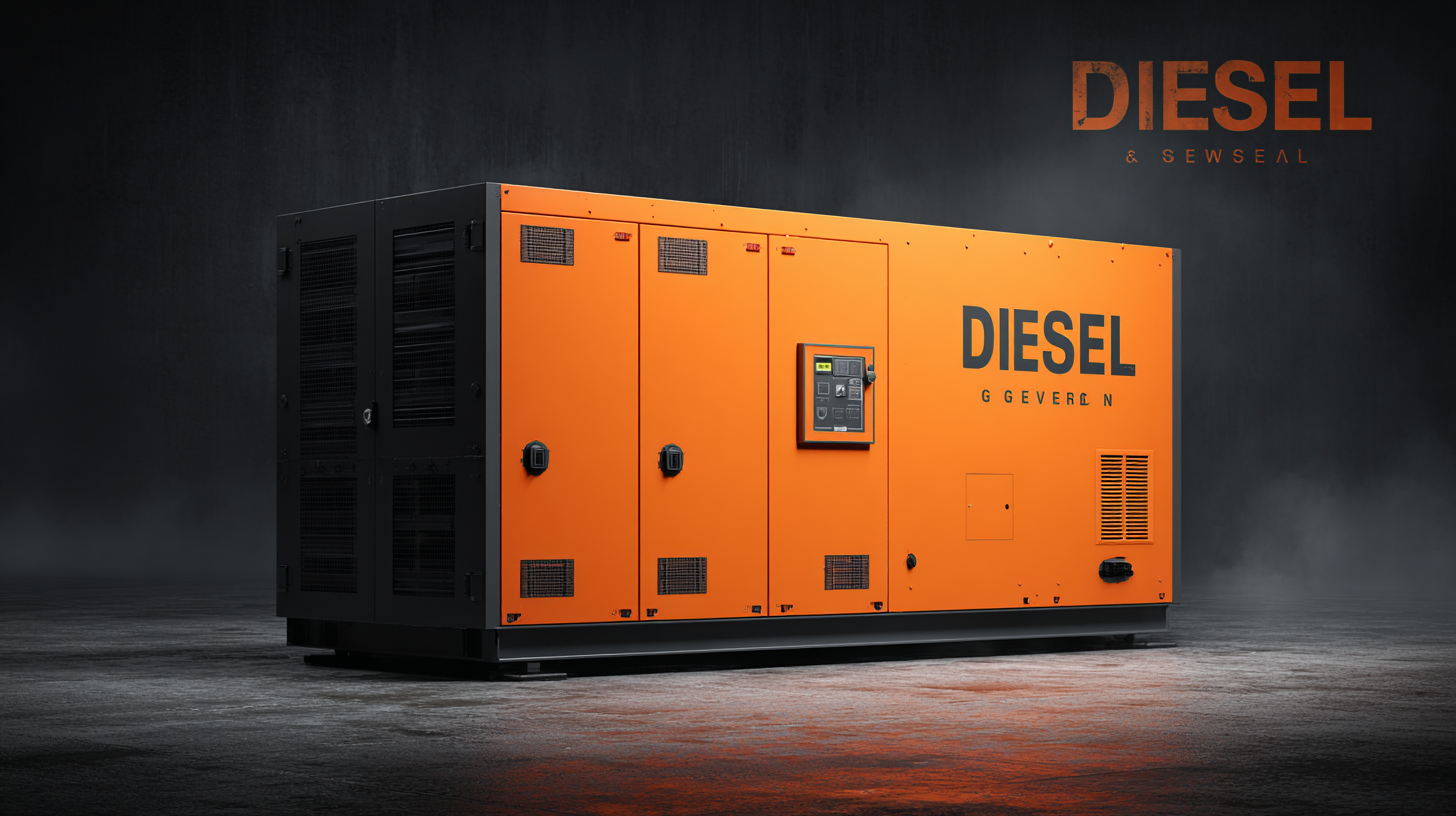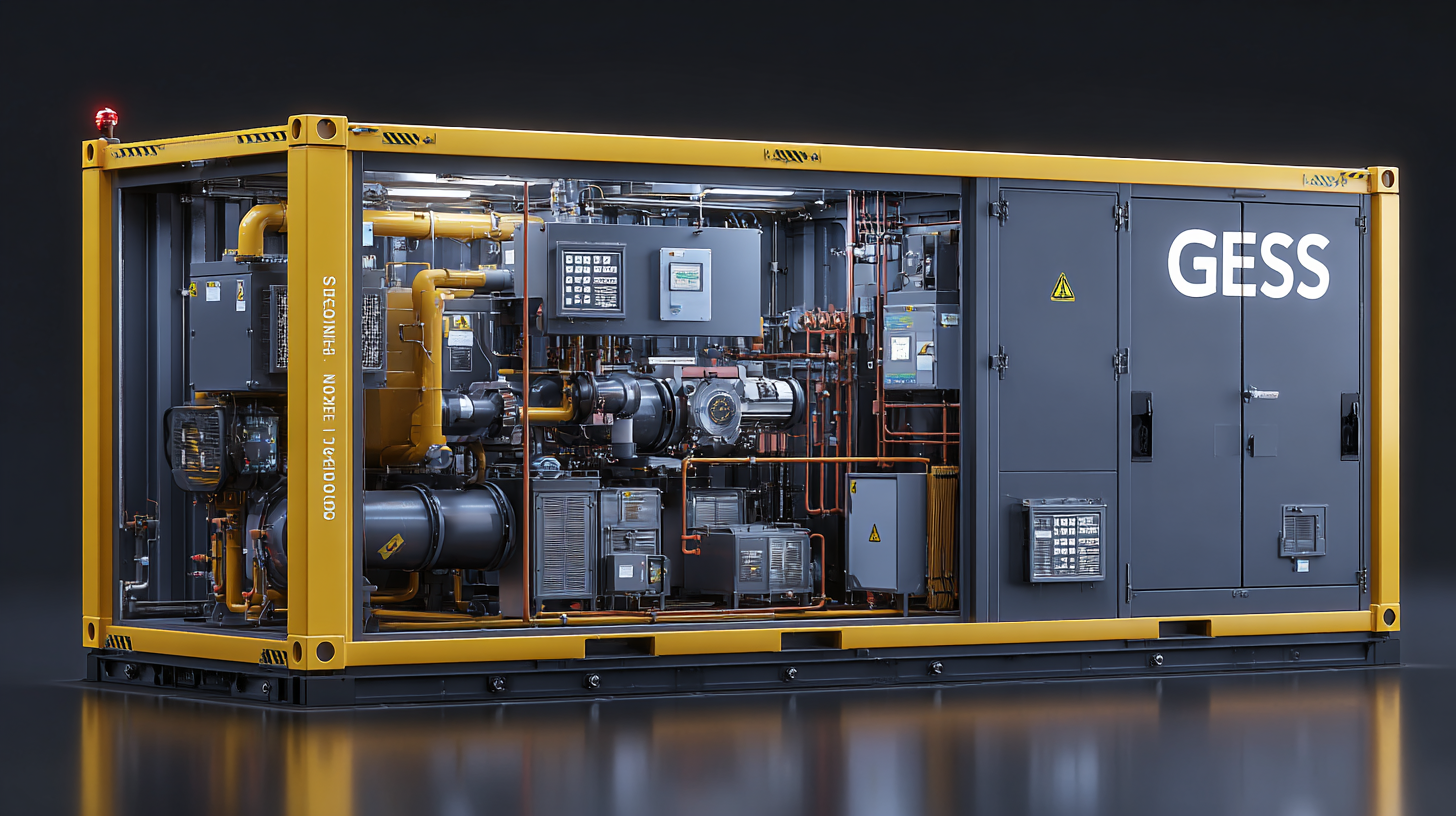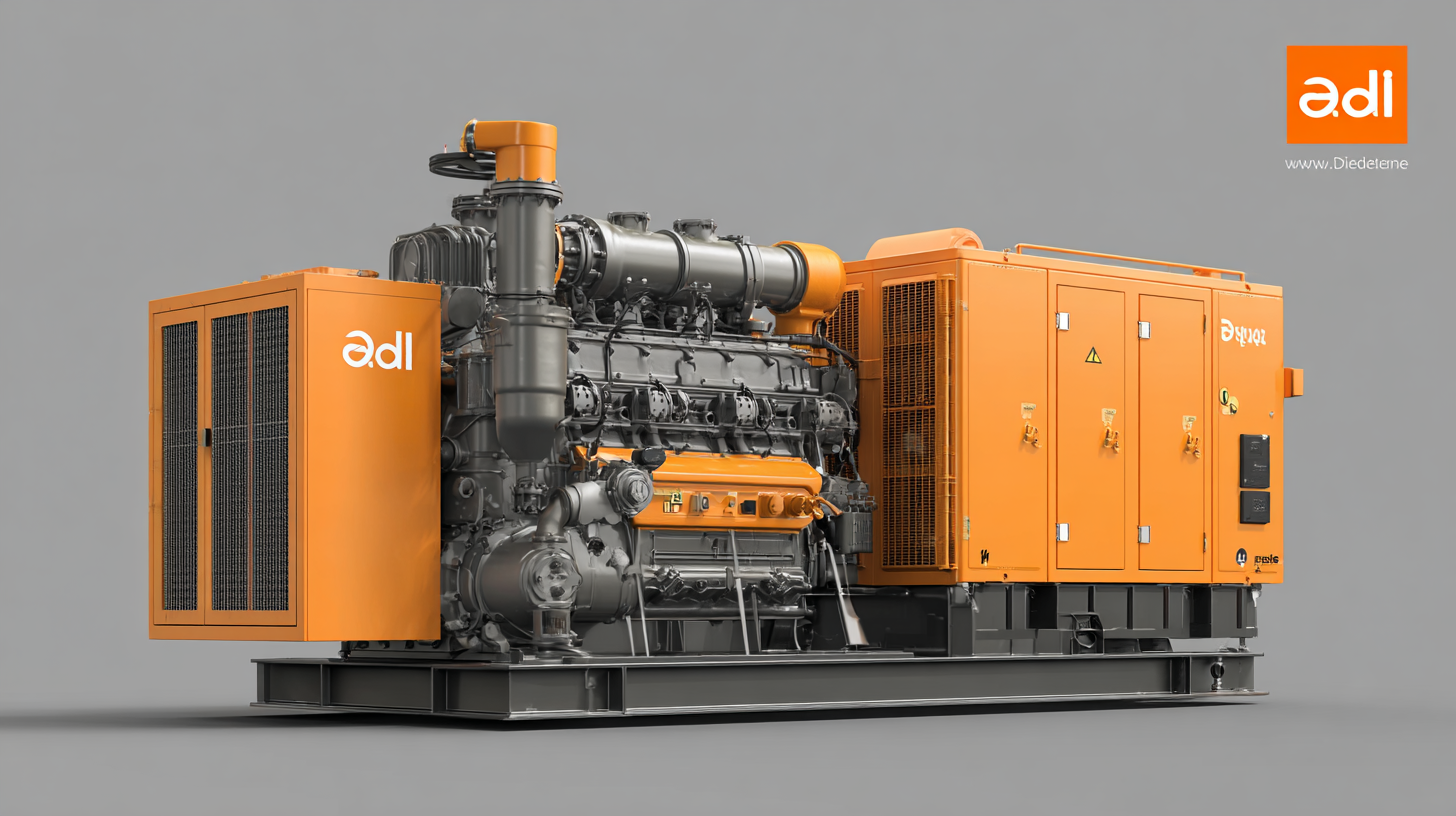
-
Home
-
Products
-
Service
-
About Us
-
Solution
-
Videos
-
News
-
Contact Us
Leave Your Message

The landscape of power generation is undergoing a transformative shift, particularly in the realm of Diesel Generator Sets, which are projected to achieve significant advancements by 2025. According to recent industry reports, the global diesel generator market is anticipated to reach approximately $22.5 billion by 2025, fueled by increasing demands for reliable backup power solutions across various sectors.

With technological innovations at the forefront, manufacturers are now focusing on enhancing fuel efficiency, reducing emissions, and integrating smart technologies into Diesel Generator Sets. These developments not only promise improved performance but also align with the global push towards sustainable energy practices.
As we delve into the detailed technical specifications of the latest models, it becomes evident that the future of Diesel Generator Sets is not only bright but also crucial for global buyers looking for efficient and reliable energy solutions.
As we move closer to 2025, the diesel generator market is experiencing significant innovations aimed at increasing efficiency and sustainability. One of the most notable trends is the integration of advanced digital technologies, such as IoT and artificial intelligence, into generator operations. These smart systems allow for real-time monitoring and predictive maintenance, ensuring that generators run optimally while reducing downtime. Moreover, these technologies can help operators make data-driven decisions, enhancing the overall performance and longevity of diesel generator sets.
Another emerging trend is the shift towards hybrid power solutions. By combining diesel generators with renewable energy sources, manufacturers are creating more environmentally friendly options for global buyers. This hybrid approach not only lowers emissions but also enhances fuel efficiency, addressing the increasing demand for greener energy solutions. Additionally, the development of advanced emission control technologies is expected to further minimize the environmental impact of diesel generators, positioning them as a more viable option in the push for sustainability within the energy sector. As these trends continue to evolve, buyers can look forward to more innovative and efficient diesel generator sets that meet the demands of the future market.
As the diesel generator industry continues to evolve, understanding the essential export and import certifications for these units in 2025 becomes critical for global buyers. The increasing emphasis on environmental regulations necessitates that generators meet specific standards, ensuring they operate efficiently and minimize emissions. Compliance with international certifications such as ISO, CE, and EPA not only enhances product credibility but also demonstrates a commitment to sustainability, which is increasingly prioritized by consumers and regulatory bodies alike.
In addition to environmental certifications, buyers must also be aware of safety and performance standards. Certifications such as UL and AS/NZS assure that the generators meet rigorous safety requirements, which is crucial for both manufacturers and end-users. Staying informed about these certifications not only aids in navigating the complexities of international trade but also positions buyers to make informed decisions that align with their operational needs and regulatory obligations in their respective markets.
Navigating diesel generator set compliance regulations is crucial for global buyers, especially as advancements in technology continue to reshape the industry. In 2025, it is expected that approximately 65% of the diesel generators sold globally will adhere to stringent emissions standards like Tier 4 in the U.S. and EU Stage V in Europe. Compliance not only ensures environmental responsibility but also enhances the operational efficiency of these power sources.
Understanding the compliance landscape begins with familiarizing yourself with local regulations that dictate permissible emission levels. For instance, the International Energy Agency (IEA) reports that various regions will implement stricter guidelines to mitigate the environmental impacts of diesel generators. Additionally, buyers should consider certifications such as ISO 8528, which outlines performance requirements, and look for manufacturers that design their products with these benchmarks in mind. By following a step-by-step approach to compliance, from selecting the right equipment to ensuring proper installation, buyers can safeguard their investments while contributing to sustainable energy practices in 2025 and beyond.
This chart illustrates the predicted advancements in diesel generator set technology across various factors by 2025, including Efficiency, Emissions, Durability, and Cost. These parameters are crucial for global buyers navigating compliance regulations.
As the year 2025 approaches, global buyers looking to invest in diesel generator sets will find an array of innovative features tailored to meet their evolving needs. One significant advancement is the integration of smart technology, allowing users to monitor and control their generators remotely through mobile apps. This feature not only enhances convenience but also facilitates predictive maintenance, ensuring optimal performance while minimizing downtime.
Another exciting innovation is the development of more fuel-efficient engines, designed to comply with stringent environmental regulations without sacrificing power output. These modern generators will utilize advanced combustion techniques and high-quality materials to reduce emissions significantly. Buyers should also look for models equipped with noise reduction technologies, making them ideal for use in urban environments where noise pollution is a growing concern. With these innovations, diesel generators in 2025 will not only provide reliable power but also align with global sustainability goals.

When selecting a diesel generator in today's competitive market, understanding the latest advancements in technology and performance is crucial. Buyers should consider the efficiency ratings and output capacity of generators, as highlighted in recent industry reports. For instance, high-quality diesel generators are now designed to achieve optimal fuel efficiency, with some models boasting up to 25% better fuel consumption compared to previous generations. Additionally, modern collaborations in the sector have led to the development of innovative features, such as integrated microgrid capabilities, making these generators a sustainable choice for various applications ranging from industrial to residential use.
Furthermore, it is essential to review reputable reports that outline the best practices for evaluating generator options. Industry experts recommend assessing the durability and warranty terms offered by manufacturers, along with the availability of after-sales service and support. With the emergence of top companies in the generator market, buyers should prioritize models that provide comprehensive data showcasing their performance in real-world conditions. As highlighted in recent studies, the durability of high-quality generators can significantly reduce long-term operational costs, making informed buying decisions even more critical in today's evolving energy landscape.
